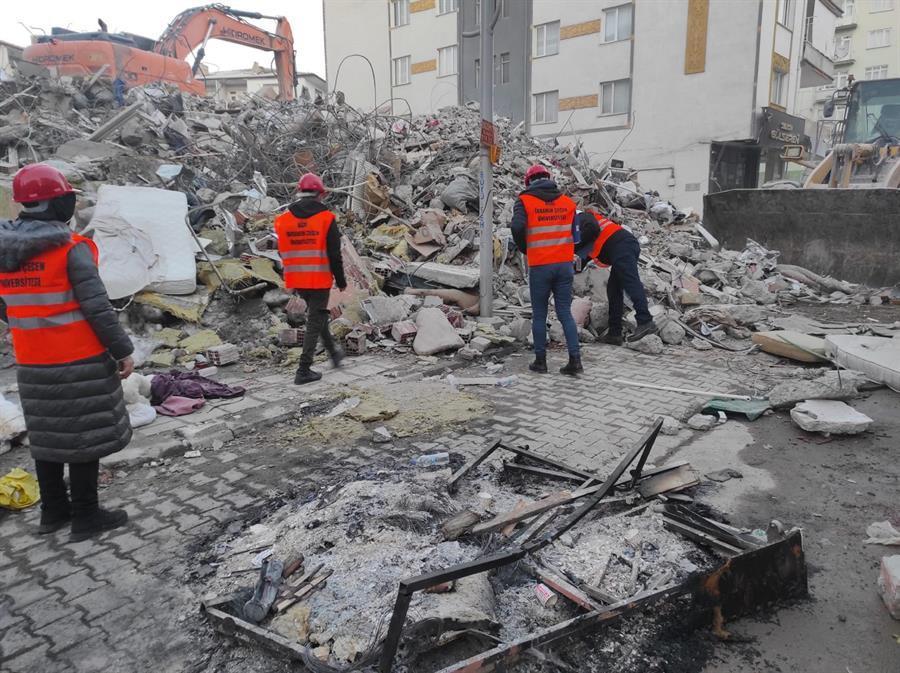
In addition to the construction materials in the debris waste, wood, electronic, plastic and metal materials might become a pollution mechanism that threatens the nature and the health of living species in a wide area by mixing with soil and water, says a Greenpeace report.
The “Assessment Report on the Earthquake Zone” published by Greenpeace Mediterranean draws attention to the pollution risk caused by the debris in the earthquake zone.
The report pointed out that debris waste contains all kinds of wood, electronic, plastic, metal materials, hazardous wastes and organic materials inside the house, in addition to building materials, saying, “This situation leads to an increase in the pollution level of debris.”
The transportation of several different materials contained in debris by wind and rain can lead to the formation of “a mechanism that can occur continuously and become permanent rather than a temporary pollution,” the report warned.
The 11 provinces affected by the earthquake account for 20 percent of Türkiye’s crop production. According to Greenpeace, the total amount of rubble is 100 million tons.
The dumping of debris at the site or around agricultural lands will cause irreversible problems, while the danger will not only be limited to agricultural lands, it will also affect water resources and biodiversity, experts warned recently.